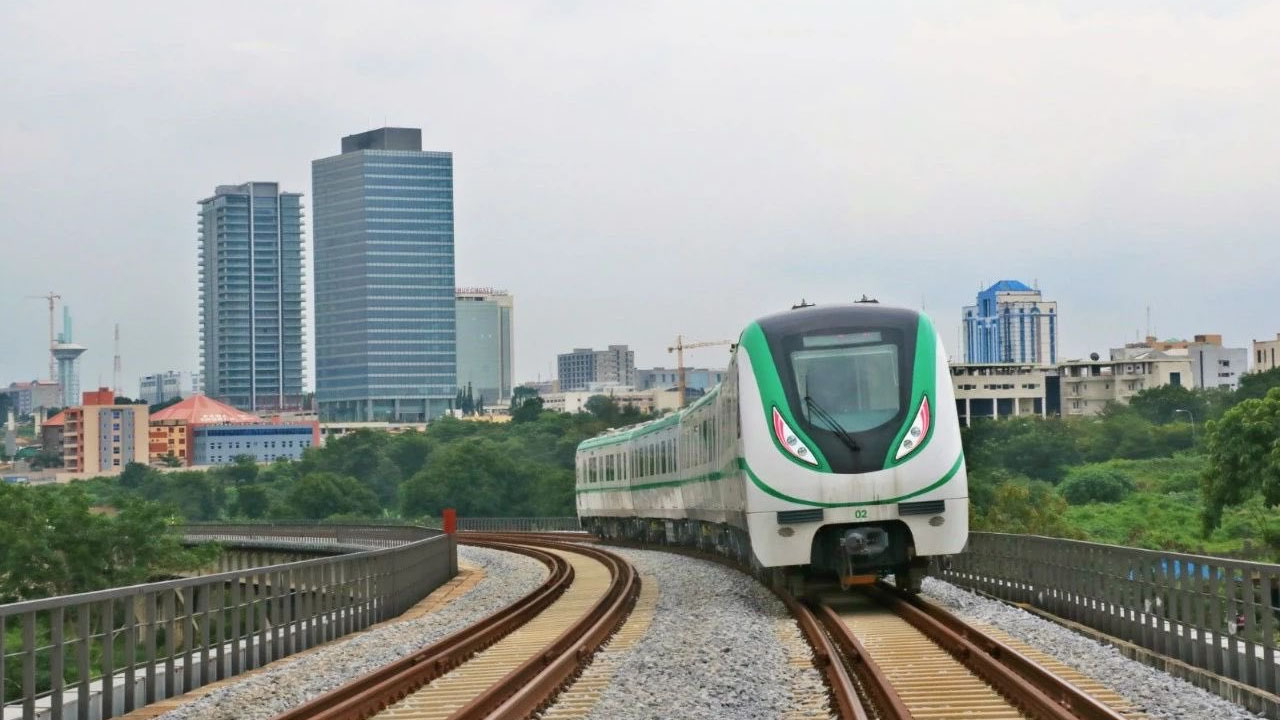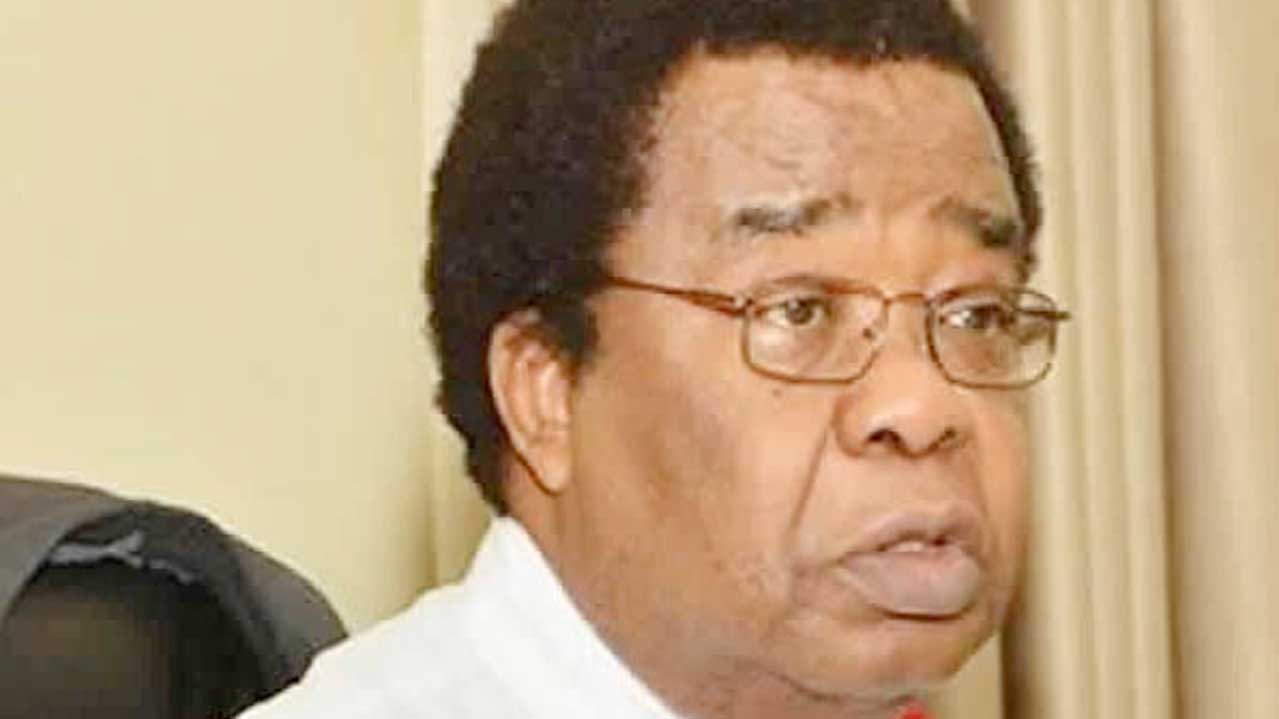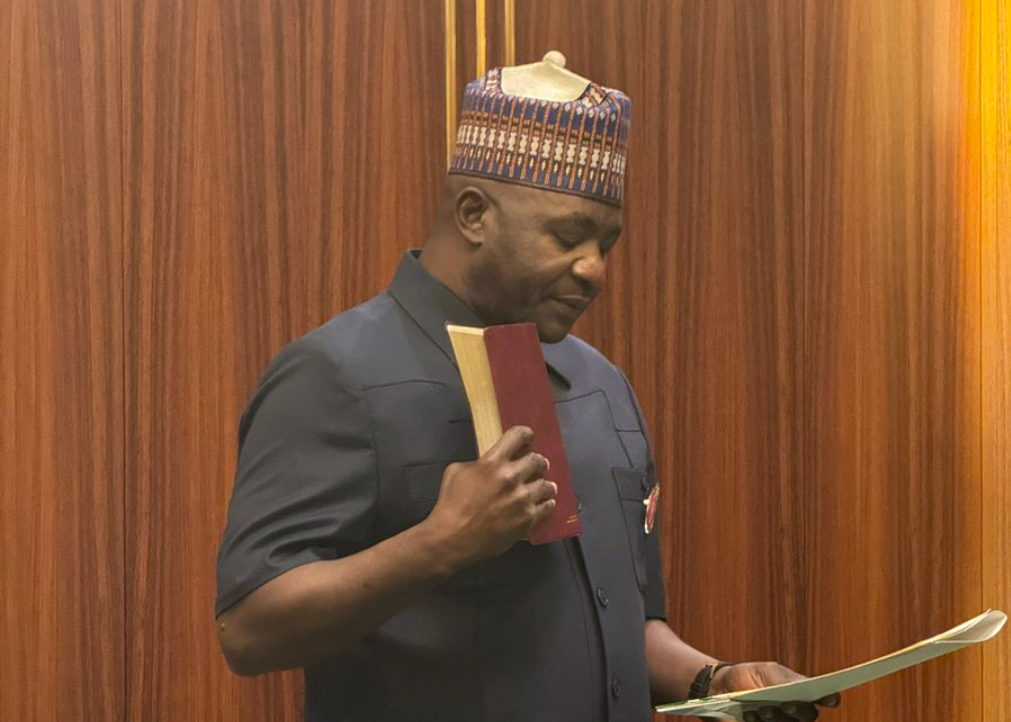
From Nguru, you will have to take a lorry if you want to travel further. I have travelled to every state in Nigeria, but I was always in too much hurry to think of travelling by rail. That is a lot of a journalist and the tyranny of the deadline!
Though I had travelled by train in other countries, it was not until last December that I had the privilege of travelling by rail in Nigeria. I must confess, it was a very pleasant experience. I had been invited to Abeokuta, capital of Ogun State, to attend the burial of the mother of Reverend Matthew Shobiye, our family friend.
In the morning, I boarded the train at the Babatunde Raji Fashola Train station, Agege. The train station is a beautiful architectural piece, made mostly with aluminium and other metals. The air-conditioning was good and the service prompt.
One of the first things that will surprise you is that the station is tucked into a cul-de-sac, which is difficult to access if you are determined to pack your car at the station. In the end, we packed at the roadside and accessed the station on foot. The ambience was welcoming and cool. This is what Nigerians deserve, you say to yourself. You move to buy your ticket, and you are told that the Nigerian Railway Corporation (NRC) does not accept payment with ATM card. You have to pay cash! You wonder how can anyone run a modern establishment this day without the facility for electronic transfer of cash. Yet the Federal Government of Nigeria, which is propagating for a cashless economy, is the owner of the NRC.
I think we paid N2, 000 to get to Abeokuta for the economy class. The Business Class had been fully booked from Ebute Metta. Everything is done manually. You cannot book in advance. You have to be there physically. You cannot book online of course. The NRC, despite its modernistic gadget and state of the art station, is still a throwback to the old times of the analogue generation.
So we paid, collected our tickets and filed into the cozy wagons. It was a comfortable ride as the countryside fled pass in a brief pace. We could see the shanties lining the rail tracks where the poor and the lowly of our republic lay their heads and try to live what they call life. Soon we got to Abeokuta in about an hour and we disembarked at the Wole Soyinka Station, named in honour of Africa’s pre-eminent poet, Nobel laureate, playwright and political activist. Just like in Lagos, it was not an easy place to access too. The station is a beautiful place. It is one place worthy of the great Wole Soyinka.
Railway journey in Nigeria is more than a century old. For me, the railway lore was part of my growing up years. In the early days of the railway, my mother lived with her uncle, Bayowa, who later became the Saloro of Okemesi, in Ile-Ogbo, one of the smaller stations in Osun State near Iwo. Another uncle of mine, Chief James (Jaymisi as my mother used to call him) Ekunola, was one of the big men of the railway station at Zaria where he had all his children. We used to call him Baba Zaria. In his heydays, the NRC sent him abroad for several trainings. Oyedokun Babarinsa, my father’s kid-brother, was a top-rated technician at the railway workshop at Ebute-Metta, Lagos. Many years after his retirement, he was still consulting for the NRC.
I don’t know whether any of these people would recognise the new NRC. This new NRC is what many Nigerians have desired for several generations. Since the British constructed the rail lines in the early 20th Century, the NRC had stayed in the same time zone for several generations. Nothing really happened to the railway. If you want to know how your forefathers travelled when Lugard was here, travel by train. For many years, Alhaji Ibrahim Dasuki, the late Sultan of Sokoto, was the chairman of the NRC. When I met him in his Miyetti Allah lodge in Sokoto in 1987, he said succeeding governments have refused to implement proposals on the reform of the railways. General Yakubu Gowon government, the most successful regime in Nigerian history in terms of infrastructural development, simply left the railway in its peculiar time zone.
There was a stirring during the regime of General Sani Abacha when Chief Ebenezer Babatope was the Minister of Transport. In the end, the railway slugged on with its pace. Real attempt to tackle the railway problem started with Chief Olusegun Obasanjo who was our President from 1999 to 2007. He appointed a powerful board and made a vigourous young man, as the new Chief Executive. Unfortunately, the chairman died in a plane crash, but his job continued and today we have an almost new NRC.
The problem is whether we can still claim it is our own railway. I understand that everything about the new railway is imported from China, including the new terminal buildings. While we need to have the technical support of the Chinese to have a new rail line, I think Nigerians should have been allowed to build the terminal buildings. If Nigerian companies are building airport terminals and Bi-Courtney is managing the Murtala Muhammed Airport2 in Ikeja, I don’t see any reason why Nigerian companies and engineers were deprived of the opportunity of building the railway terminal buildings.
The Chinese did not invent the construction of rail lines and trains. They too learnt it from the Russians. By the time the Russians pulled out following the first Russo-Chinese conflict in the early 1960s, the Nigerian Railway was in full bloom and certainly better than the Chinese rail of that era. The Chinese learnt the hard way. It is time we too should be prepared to learn, even if it is in the hard way. One place to start is in building and maintenance of our own rail stations.
One intriguing perplexity in Nigeria is the increasing visibility and importance of the Chinese in the Nigerian public space, especially in the construction and related industries. Nigerian politicians may have decided to take Nigeria from the European firing pan into the Chinese fire. If you travel across the country now, you will see Chinese handling different kinds of construction projects, including local roads that could be done by Grade C Nigerian construction companies.
Yet we have had giant construction companies that grew out of Nigerian soil since the 1940s. Now, most indigenous Nigerian engineering firms are in crisis because the political leaders have learnt not to trust them. It is also possible that Nigerian engineers and construction companies don’t know how to deliver both at home and abroad, like the Chinese.
One fear that crept into my mind as we alighted at the Wole Soyinka Station was whether those people currently managing the rail station have the capacity to do so in the long run. Do they have the orientation or the skill to manage such expensive facilities? I think the government and the management of the NRC need to look at this critically. Let them start by impressing it on those people that this is Nigeria of 2022 and payment by POS is not really magic.
It has taken more than 20 years to achieve the feat of having the new railway line constructed and operational from Lagos to Ibadan. It would not be out of place if we continue to pray in every church, mosque and temple in the land that the Lagos to Abuja rail project be completed in our lifetime. My only fear about this is that by the time the Lagos-Abuja rail is completed, it would again have become obsolete by international standards. Nonetheless, it was a good feeling riding on the new railway. It shows if we really mean it, something good and great can happen in Nigeria.






